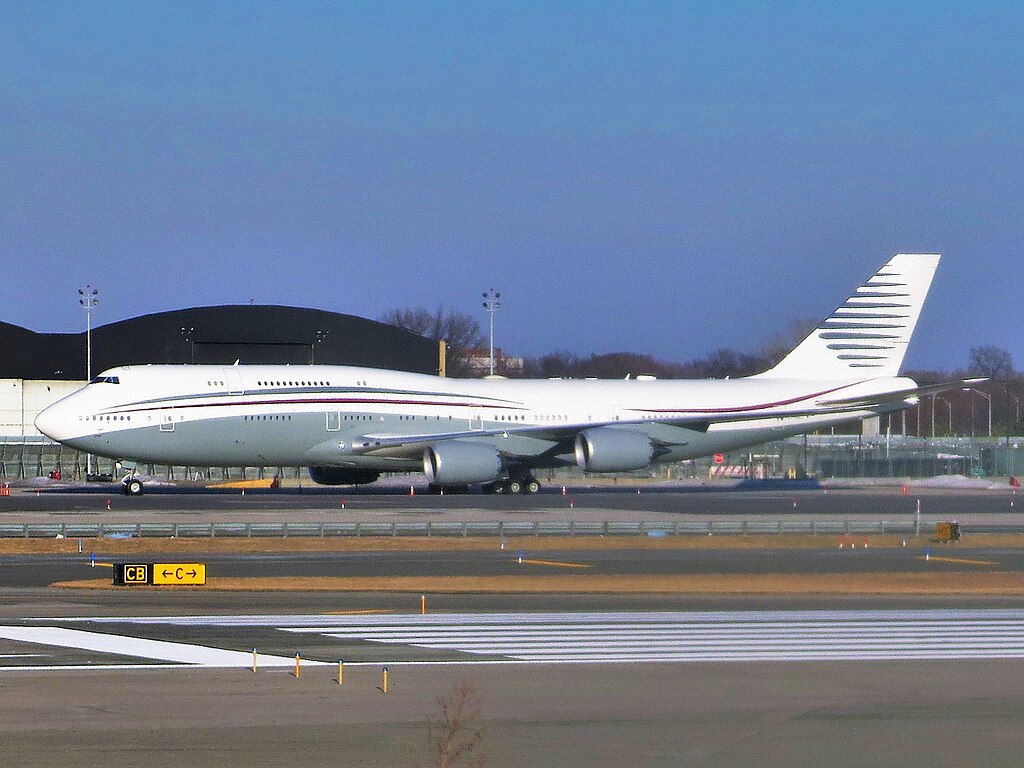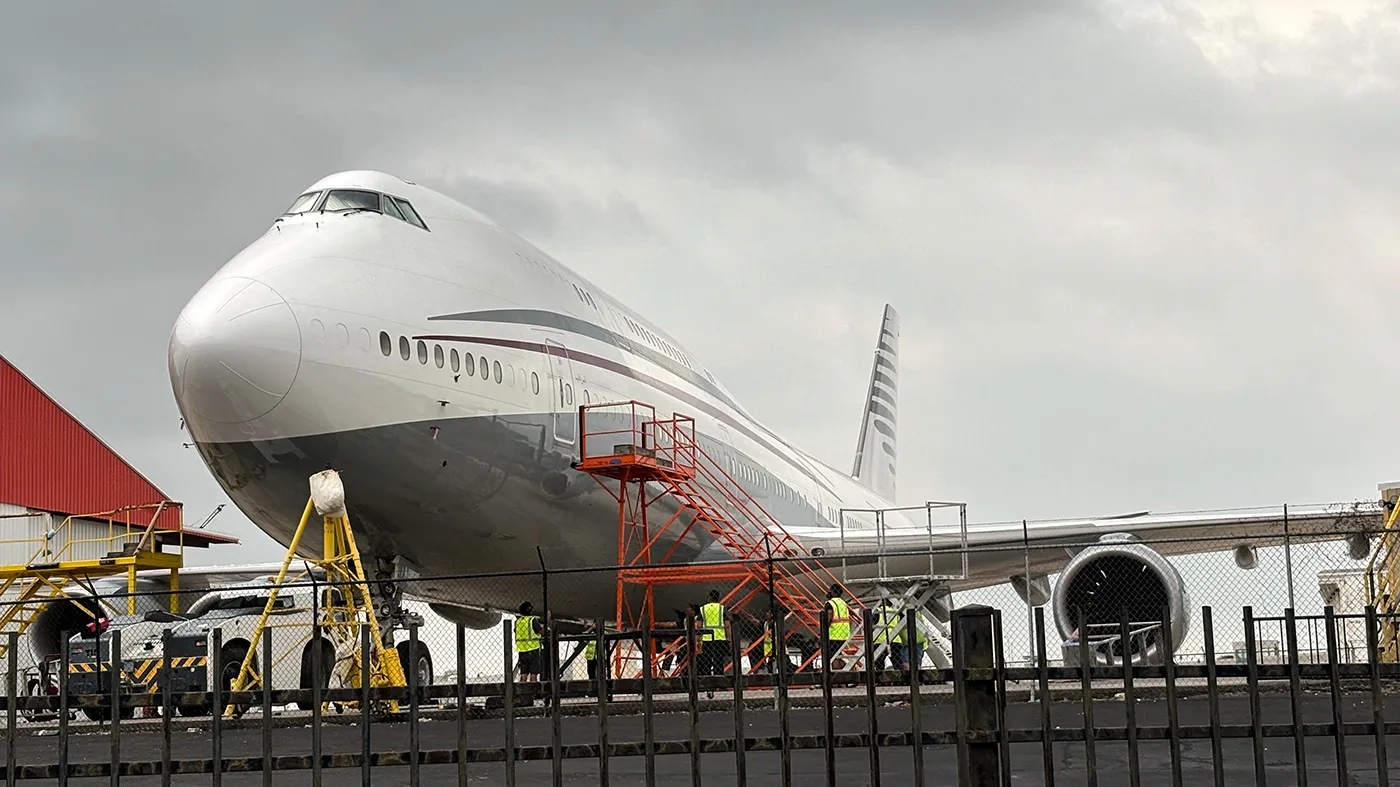The US Department of Defence has confirmed that it has accepted a Boeing 747 aircraft from the Gulf state of Qatar for potential use as Air Force One, following an offer made to President Donald Trump. The Pentagon announcement on Wednesday has ignited a firestorm of constitutional, ethical, and national security concerns over the unprecedented move.
Pentagon spokesperson Sean Parnell said the aircraft, valued in the hundreds of millions of dollars, was accepted “in accordance with all federal rules and regulations.” He added that the Department of Defence and the Air Force would now assess whether the plane meets the “security measures and functional-mission requirements” necessary for transporting the President of the United States.
Qatar’s gift has drawn immediate scrutiny, particularly in light of the US Constitution’s Emoluments Clause, which forbids federal officials from accepting gifts from foreign states. Critics argue the donation violates this clause, while supporters of the president insist the aircraft is a practical gift that should not be turned down.

Trump, responding to the criticism, said rejecting the offer would be “stupid” and praised Qatar’s gesture as generous. “I would never be one to turn down that kind of an offer,” the 78-year-old said at the White House last week. “I mean, I could be a stupid person (and) say ‘no, we don’t want a free, very expensive airplane.’”
The controversy has prompted a legislative response. Senate Democratic leader Chuck Schumer has introduced the Presidential Airlift Security Act, which would bar the use of federal funds to convert any aircraft previously owned by a foreign government into Air Force One. Schumer warned the move could compromise national security and questioned Trump’s motives.
“Donald Trump has shown time and again he will sell out the American people and the presidency if it means filling his own pockets,” Schumer said. “There’s absolutely no amount of modifications that can guarantee this plane will be secure.”
Despite some Republican unease, Senate Majority Leader John Thune has not committed to advancing the bill. However, Schumer has vowed to force a vote by tying the legislation to upcoming must-pass spending bills.
As the Pentagon begins its evaluation, the matter raises not only logistical questions about the plane’s suitability but also deep political and legal debates about presidential ethics and the influence of foreign powers.


 Trending
Trending 